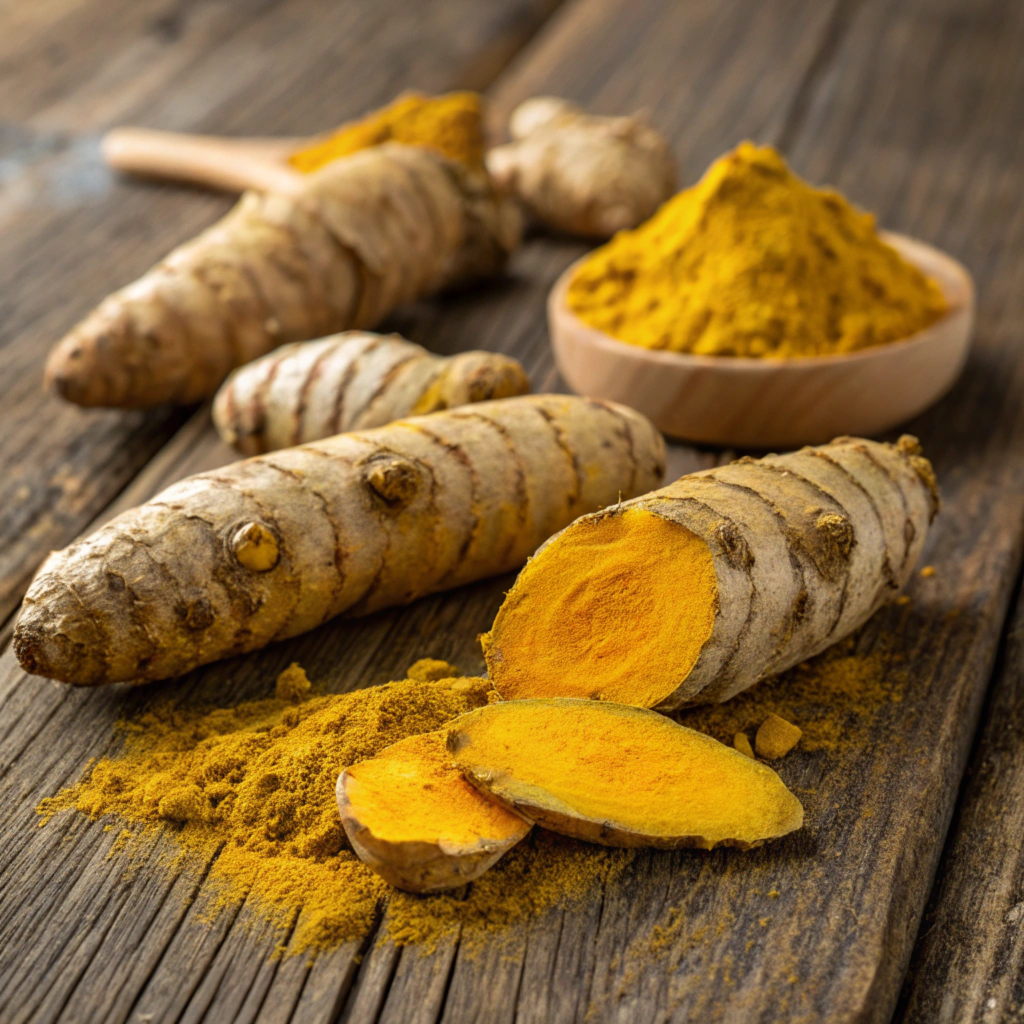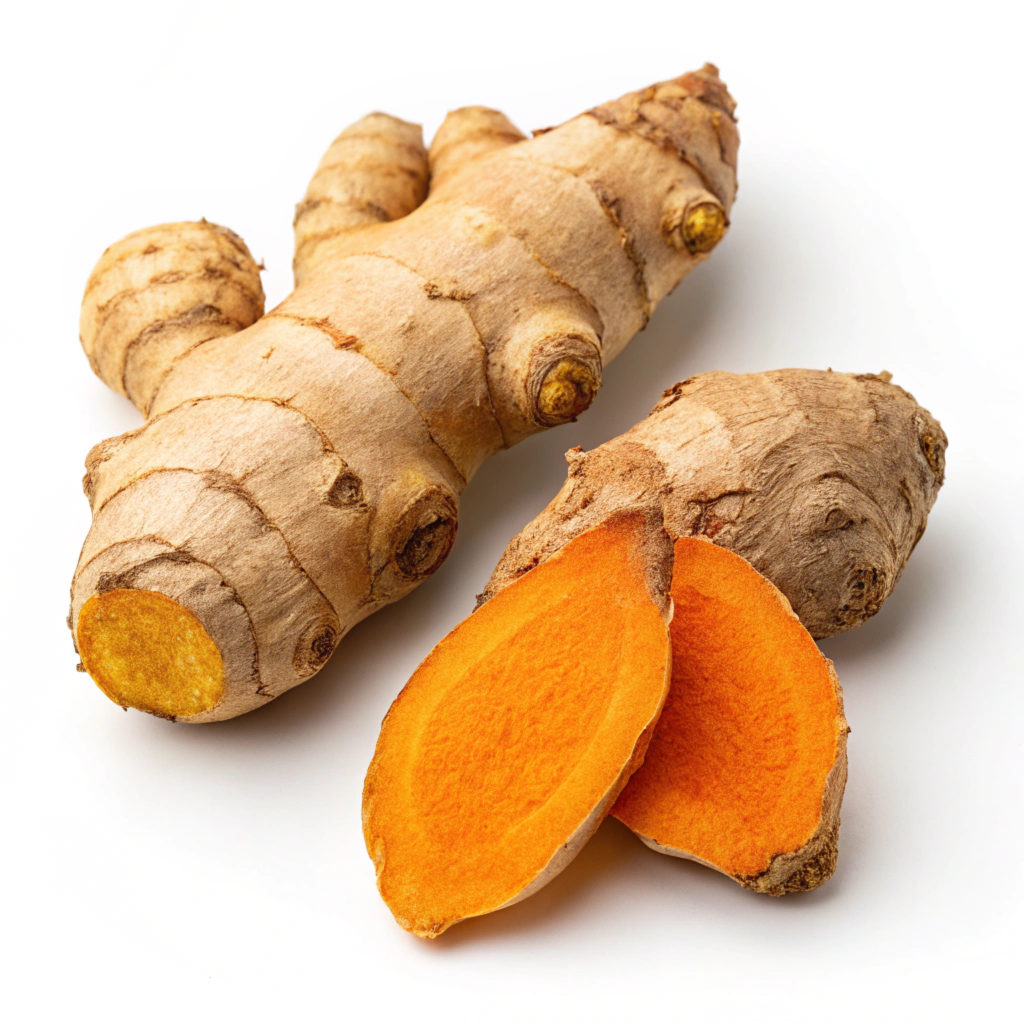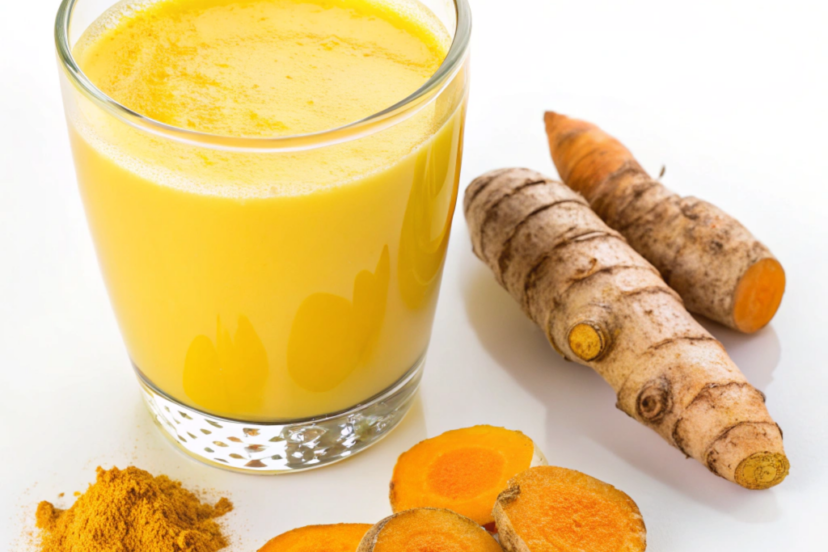9 Scientific Health Benefits Of Juicing Turmeric
When it comes to embracing a healthy lifestyle, there are few natural ingredients as powerful as turmeric. Known for its bright yellow color and often found in Indian cuisine and curry powder, turmeric has a storied history in Ayurvedic medicine and traditional Chinese medicine. But beyond adding flavor and color to dishes, there’s a world of scientific health benefits of juicing turmeric that deserves our attention. If you’ve ever wondered what fresh turmeric root and its active ingredient, curcumin, can do for your body, you’re about to get an enlightening dose of knowledge. Let’s dive into the potential health benefits of turmeric that are backed by research studies and take a look at how to incorporate turmeric juice into your daily routine.
What Is Turmeric?

Turmeric is a vibrant, golden-yellow spice derived from the root of the Curcuma longa plant, native to Southeast Asia and widely cultivated in India. Known for its earthy, slightly bitter flavor and warm, peppery undertones, turmeric is a staple in many culinary traditions, particularly in Indian and Southeast Asian cuisines. Its active compound, curcumin, is celebrated for powerful antioxidant and anti-inflammatory properties, making turmeric not just a cooking ingredient but a prized component in traditional and alternative medicine. For centuries, turmeric has been used to treat a range of health issues, from digestive disorders to skin conditions, and now extensive scientific research has brought it into the spotlight as a natural remedy with potential benefits for heart health, immune support, and even cognitive function. This versatile root can be used fresh, dried, or powdered, and is often consumed in juices, teas, supplements, and as a key flavor in curries and sauces.
What Makes Turmeric So Powerful?
The primary compound in turmeric, curcumin, is responsible for its renowned health-boosting effects. Though curcumin makes up only a small fraction of fresh turmeric root, its potential impact on the body is enormous. Curcumin has powerful anti-inflammatory properties and antioxidant properties that have been studied extensively in human studies and clinical trials. The use of curcumin has proven effective in addressing a range of chronic conditions, from arthritis to heart health.
Scientific Health Benefits of Juicing Turmeric
Juicing fresh turmeric allows for a concentrated dose of curcumin that’s easy for your body to absorb. Drinking turmeric juice also introduces other beneficial compounds that are naturally present in the root. Below, we’ll explore the most compelling health benefits of juicing turmeric, supported by research.
1. Anti-Inflammatory Power Against Chronic Inflammation
One of the most widely celebrated health benefits of turmeric is its ability to combat inflammation. Chronic inflammation is a major player in many diseases, including rheumatoid arthritis, ulcerative colitis, and inflammatory bowel disease. Curcumin, the active compound in turmeric, has been shown to suppress several molecules that play a role in inflammation, such as cytokines. Studies published in The Arthritis Foundation indicate that taking turmeric can relieve joint pain and improve mobility in those with arthritis, potentially reducing the need for pain medications.
2. Strong Antioxidant Properties for Fighting Free Radicals
Another way that turmeric supports health is through its antioxidant properties. Free radicals, or unstable molecules that cause damage at the cellular level, are a natural byproduct of our bodies’ processes but can lead to oxidative stress and aging. Curcumin neutralizes these free radicals, reducing the damage to cells. According to the Cleveland Clinic, curcumin can help protect against a variety of chronic conditions by stabilizing free radicals.
3. Supports Heart Health and Lowers Cholesterol Levels
For heart health, turmeric’s benefits are impressive. Turmeric has been found to lower cholesterol levels and reduce oxidative damage in the arteries. In clinical studies, curcumin was found to improve the function of the lining of blood vessels, a significant factor in the prevention of cardiovascular disease. This not only promotes healthier blood vessels but also lowers the chances of high blood pressure and other heart-related risks. Given these findings, incorporating turmeric juice into your diet may be a beneficial way to protect against a heart attack and promote cardiovascular health.
4. Brain Health Support and Potential Against Alzheimer’s Disease
There’s a fascinating connection between curcumin and brain health. Curcumin has been shown to increase levels of a protein called brain-derived neurotrophic factor (BDNF), which supports the health of existing neurons and encourages the growth of new ones. Low BDNF levels have been associated with Alzheimer’s disease and other neurological disorders. Some animal studies suggest that regular consumption of turmeric could improve cognitive function and lower the risk of age-related cognitive decline, making turmeric juice an excellent addition to the diet, especially for older adults.
5. Balances Blood Sugar Levels
Turmeric has shown promise in regulating blood sugar levels, making it particularly beneficial for individuals with or at risk of diabetes. A study published in Diabetes Care revealed that curcumin can enhance insulin sensitivity and decrease blood sugar levels. Drinking turmeric shots or incorporating turmeric into daily meals may help support metabolic health by aiding glucose regulation.
Additional Benefits of Juicing Turmeric
Beyond the primary benefits above, turmeric offers a host of additional health benefits that make it a worthwhile daily addition. Here are more scientific health benefits of juicing turmeric that can make a big difference:
6. Potential Cancer-Fighting Properties
Research has also explored the potential of curcumin in cancer treatment. Studies suggest that curcumin may inhibit the growth of certain cancer cells, particularly those related to colorectal cancer. According to the National Cancer Institute, curcumin’s antioxidant and anti-inflammatory effects could play a role in cancer prevention, especially when consumed as part of a regular diet.
7. Supports Immune System Health
Turmeric’s effect on the immune system is another reason to start juicing it. Curcumin has been shown to modulate immune function, enhancing the body’s ability to fight infections and reduce immune overreaction in autoimmune diseases. A glass of fresh cold-pressed juice with turmeric can be a powerful addition to any immune-boosting routine.
8. Improves Liver Function
The liver plays a key role in detoxifying the body, and turmeric is known to support this process. Curcumin’s antioxidant power has been shown to improve liver function by reducing liver inflammation and supporting cellular health. This makes turmeric juice a valuable addition for those looking to support their liver naturally.
9. Aiding in Digestion and Gut Health
Turmeric’s role in supporting gut health is well-documented, especially for those with digestive disorders. Turmeric can help alleviate symptoms of irritable bowel syndrome and inflammatory bowel disease. For many people, a little turmeric added to meals or consumed as fresh juice can ease abdominal pain and improve overall digestion.
How to Make Fresh Turmeric Juice and Turmeric Shots at Home

Juicing turmeric at home is simple and incredibly rewarding. Below, you’ll find an easy recipe for fresh turmeric juice and turmeric shots that pack a powerful health punch.
Ingredients for Turmeric Juice
• Fresh turmeric root (3–4 inches, peeled)
• Lemon juice (1–2 tablespoons)
• Fresh black pepper (a pinch, for enhanced absorption of curcumin)
• Honey or agave (optional)
• Fresh water (1 cup)
Instructions
1. Place the fresh turmeric root in a food processor along with lemon juice and black pepper.
2. Blend until smooth.
3. Strain using a nut milk bag to remove the pulp.
4. Store in an airtight container in the fridge for up to one week.
This fresh cold-pressed juice is perfect as a morning shot or added to smoothies for a nutritious boost.
Other Ways to Incorporate Turmeric into Your Diet
In addition to juicing, there are several ways to enjoy the turmeric benefits daily.
Turmeric Tea

A warm cup of turmeric tea is soothing and easy to prepare. Boil ground turmeric powder with water and add honey or ginger for added flavor and health benefits. Turmeric tea is especially helpful during cold and flu season as it supports immunity.
Turmeric Extract and Supplements
Turmeric extract or turmeric supplements provide a standardized curcumin dose, making them convenient for those who want a regular, reliable intake. Many supplements combine turmeric with fresh black pepper to enhance the absorption of curcumin.
Turmeric in Smoothies and Curries
Adding turmeric powder to smoothies or curries is an excellent way to incorporate it into your diet without too much effort. Whether it’s in Indian cuisine or mixed into fresh fruits and vegetables, turmeric is versatile and pairs well with a variety of flavors.
Potential Side Effects of Turmeric Juice
While the benefits of juicing turmeric are numerous, it’s essential to be mindful of potential side effects:
- Stomach Upset:
Ingesting large amounts of turmeric can lead to digestive discomfort, including abdominal pain and nausea. - Blood Thinning:
Turmeric’s blood-thinning properties mean it should be consumed cautiously if you’re on blood thinners. - Pregnancy Considerations:
Pregnant women should consult with a healthcare provider before adding large doses of turmeric to their diet. - Risk of Kidney Stones:
For some, high doses of turmeric may increase the likelihood of kidney stones due to its oxalate content.
Difference Between Turmeric and Ginger

Turmeric and ginger are both rhizomes from the same botanical family, Zingiberaceae, giving them similar appearances and earthy flavors, but each brings unique qualities to the table. Turmeric has a slightly bitter, warm, and peppery flavor, while ginger is known for its sharper, spicy, and slightly sweet taste. This difference makes ginger more commonly used in drinks and sweet dishes, whereas turmeric’s earthy bitterness pairs well with savory dishes like curries.
In terms of health benefits, both offer powerful anti-inflammatory and antioxidant properties, yet they target different areas in the body. Turmeric’s primary compound, curcumin, is highly researched for its potential to alleviate chronic inflammation, support joint health, and promote heart and brain health. Ginger’s main bioactive compound, gingerol, is celebrated for relieving nausea, reducing digestive discomfort, and easing cold symptoms. While both are used in traditional and alternative medicine, turmeric is often recommended for long-term inflammatory conditions like arthritis, while ginger shines in providing quick relief for stomach upset and temporary pain.
Together, they make a powerful duo, combining their strengths for an amplified impact on inflammation, digestion, and overall health. Adding both turmeric and ginger to your routine can provide a balanced approach to natural healing, enhancing each other’s bioavailability and health benefits.
Final Thoughts on the Health Benefits of Juicing Turmeric
With its wide-ranging scientific health benefits, turmeric juice is an easy, effective way to promote a healthy lifestyle. Whether you’re adding it to smoothies, making turmeric shots, or enjoying it in warm tea, turmeric offers profound anti-inflammatory, antioxidant, and immune-boosting effects. Always remember to pair turmeric with black pepper for optimal curcumin absorption and start with a small dose to see how your body reacts. If you’re ready to take advantage of turmeric’s health benefits, juicing this vibrant yellow root could be the key to better health.
By adding turmeric juice to your daily routine, you’re embracing a time-tested remedy that both ancient traditions and modern science support.
Explore related articles:
- Top 10 Juicers for Fruits and Vegetables in 2025
- Moringa Capsules: Uses and Health Benefits
- Discover the Wonders of Moringa Oil
- Organic Moringa Powder: Scientific Health Benefits
- Moringa Leaf Tea: The Superfood in Your Cup
- Moringa Tree: A Natural Pharmacy In Your Backyard
- Chia Seeds vs Flax Seeds: Unraveling the Superfood Showdown
- Cabbage Juice: Benefits + 10 Recipes for Weight Loss
- Potassium-Rich Foods: Banana vs Potato Showdown
FAQs
1: What’s the best way to store turmeric juice?
Store in an airtight container in the refrigerator for up to a week.
2: Can turmeric juice help with weight loss?
Curcumin may support weight loss by reducing inflammation, though more studies are needed.
3: Are there any benefits to using turmeric supplements instead of fresh juice?
Yes, turmeric supplements are convenient and provide a standardized dose of curcumin.
4: Can turmeric juice help with digestive issues?
Yes, turmeric can reduce inflammation in the digestive tract and help with irritable bowel syndrome.
5: How much turmeric juice should I drink daily?
It’s generally safe to start with a small shot, around 1–2 ounces, and adjust based on tolerance.




